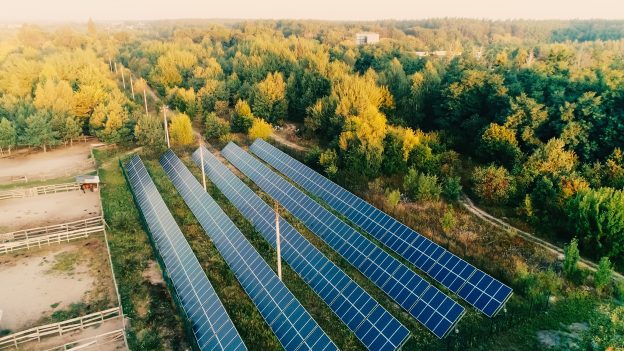
Taiwan’s solar sector has performed impressively this summer, with its total generation breaking new records and surpassing the amount of power produced by any of the island’s nuclear power plants on a few occasions. Eyeing on a steady increase in installations of PV systems across the island over the next several years, the Executive Yuan of Taiwan’s government has expanded its Two-Year Solar Promotion Plan and assigned a target of 6.5GW for the cumulative installed capacity by 2020. Premier Su Tseng-chang formally announced the target at a cabinet meeting following a related briefing by the Ministry of Economic Affairs (MOEA) on September 26. Premier Su stated that the Executive Yuan will be providing further instructions to various ministries and agencies so that they can work together to ensure the successful implementation of the solar program.
According to Premier Su’s official statement, stepping up the adoption of renewable energies is a critical part of the government’s wider efforts to wean the island’s grid off fossil fuels. Hence, solar PV is obviously going to play a major role in the government’s long-term energy strategy, which aims to have renewables provide at least 20% of the domestic electricity supply by 2025.
The second-phase expansion of the MOEA’s Two-Year Solar Promotion Plan calls for adding 1.5GW of PV generation in 2019 and 2.2GW in 2020. The combined capacity of 3.7GW from these two years will raise the island’s cumulative capacity up to 6.5GW by the end of 2020. The MOEA furthermore expects that the pursuit of this target will produce additional economic windfall. Specifically, the ministry estimates that the development of new solar projects during the 2019-2020 period will bring NT$222 billion in investments and create 22,000 jobs.
To reach the 6.5GW goal, the government will be focusing on formulating and implementing measures under the following three policy rubrics: (1) the adoption of solar power in industrial parks; (2) the adoption of solar power at agricultural, livestock, and fishery facilities; and (3) solar projects jointly developed by the central and local governments. Regarding the third policy rubric, the Executive Yuan will continue to ask various branches of the central government to assist local governments in obtaining the funding and manpower for new solar projects. At the same time, local governments are mandated to establish a department that is specifically responsible for processing new project applications. All in all, this tighter collaboration between the central and local governments is expected to effectively accelerate the allocation of land and the review of construction permits for new solar projects. Moreover, local governments will be encouraged to set up technology demonstration sites such as solar-powered agricultural and fishery facilities.
The Executive Yuan has also introduced a coordination mechanism that deals with challenges related to the implementation of the solar program at different administrative levels. In addition to inter-ministerial meetings, the Executive Yuan will also organize get-togethers among deputy/department heads of ministries and between agencies of the central government and those serving in local governments at the positions of deputy secretary-general or above. The central government is committed to fully support local governments in areas such as applying for grid connection for new solar projects and expediting the building of transmission lines connecting to renewable energy installations. Premier Su said that the approach adopted by his cabinet for attaining the 6.5GW target is the most efficient and most convenient for all those involved.
Taiwan’s government currently projects that the cumulative installed capacity for PV generation will come to 20GW in 2025, with 3GW and 17GW provided by rooftop systems and ground-mounted projects respectively. In his announcement, Premier Su noted that the Renewable Energy Development Act has been amended to require large end-users of electricity to install renewable generation systems in their own space or purchase power from certified renewable sources. This way, a portion of the power they consume will have to come from renewables. For example, Google in January this year signed a deal to have a 10MW solar power plant in Tainan City supply electricity to its data center located in Changhua County. It is also worth mentioning that the deal is also Google’s first renewable energy contract in Asia.
Premier Su added that the second phase of the Two-Year Solar Promotion Plan will not only spur the growth of the domestic green energy industry but also represents a huge economic boon for many localities. Construction and operation of solar projects will greatly assist local governments in job creation and revenue generation. And more importantly, the solar program as currently laid out is expected to lead to new opportunities for the central and local governments to cooperate and form a mutually supportive relations that will be win-win for both sides in the future.
(This article is an English translation of news content provided by EnergyTrend’s media partner TechNews. Photo credit: Pixabay.)







